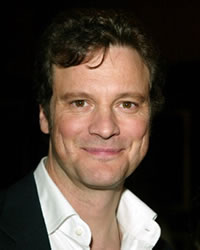Actor named as co-author of published research on the brain
|
Chiswick based actor Colin Firth is on the way to establishing himself as a renaissance man after being involved in scientific research into the brain.
A report into a study he was involved in about the relationship between the brain and political opinions originated in a feature he did as guest editor of the Radio 4 programme. He has been credited as one of four authors of the paper published in the scientific journal Current Biology.
Geraint Rees, from University College London's Institute of Cognitive Neuroscience, scanned the brains of Conservative politician Alan Duncan and Labour's Stephen Pound, MP for Ealing North.
BBC Science correspondent Tom Feilden, who also gets a credit on the report said, "What started out as a bit of fun has turned into quite a significant bit of science."
The report found that greater liberalism was associated with increased gray matter volume in the anterior cingulate cortex, whereas greater conservatism was associated with increased volume of the right amygdala. In layman's terms the report concludes that a liberal brain is distinguishable from a conservative one.
Colin is the son of college lecturers although his parents specialised in the humanities rather than sciences.
June 7, 2011
